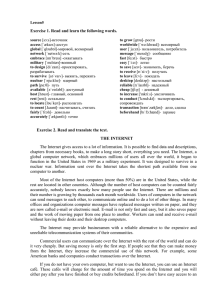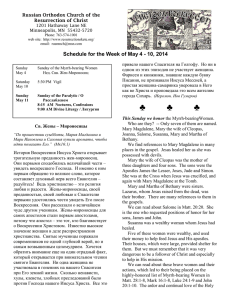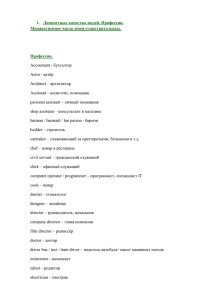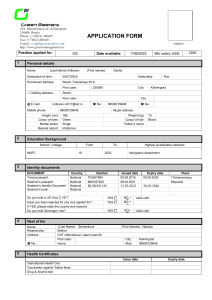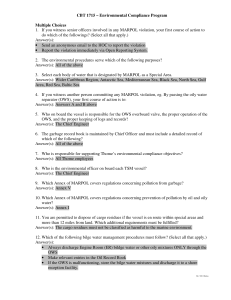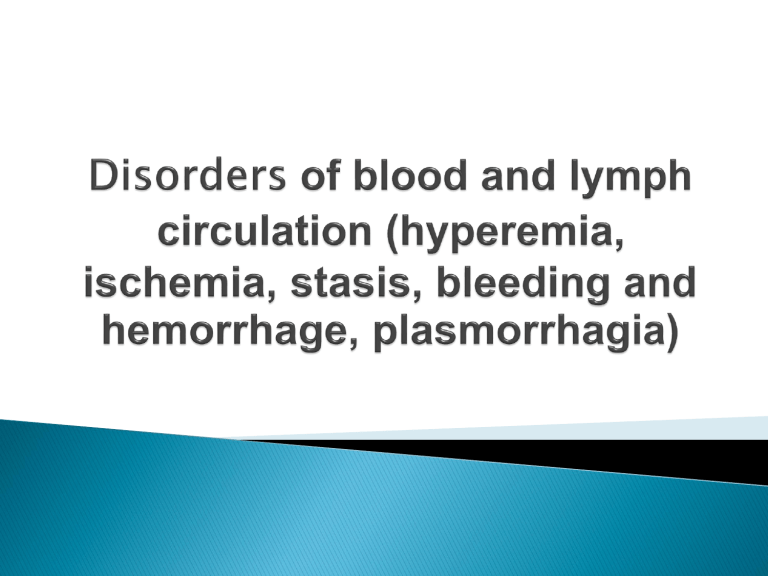
Typical pathological processes caused by changes in the volume of blood in the vascular bed, its rheological properties or the release of blood beyond the vessels. 1. Disorders of blood filling 2. Disorders of the permeability of the vessel wall 3. Disorders of blood flow and standing Types: arterial venous acute chronic local general regional Physiological, pathological General: plethora, erythremia Local: angioneurotic inflammantory vacate collateral after ischemia due to arteriovenous fistula Белый инфаркт из геморрагическим венчиком – это участок некроза беложелтого цвета отграниченный от окружающей ткани расширенными коллатеральными сосудами и диапедезными кровоизлияниями. Венчик это результат перехода спазма в паретическое расширение сосудов и повышенной их проницаемости. Local venous congestion develops when the outflow of blood from the individual organs or parts of the body becomes difficult due to occlusion of the lumen of the vein by a thrombus, embolus or vein building by a tumor, an enlarged neighboring organ. • Obstructive • Compressive • Collateral this decrease in blood filling of the body, tissue, part of the body due to insufficient blood flow. angiospastic obstructive compressive Due to redistribution of the blood stopping the flow of blood in the vessels of the microcirculatory bed, mainly in the capillaries. Bleeding (haemorrhagia) – is the release of blood from the lumen of blood vessels or chambers of the heart into the environment (external) or the body cavity (internal). As a result of the gap. As a result of erosion of blood vessels. As a result of increased permeability of the vessel walls. Hemorrhages are an accumulation in the blood tissues that flows out of the vessels. Types •Petechia •Ecchymoses (Bruises) •Hematomas •Hemorrhagic infiltration the release of plasma from the bloodstream. The consequence of plasmorrhage is the impregnation of the plasma wall of the vessel and surrounding tissues.

